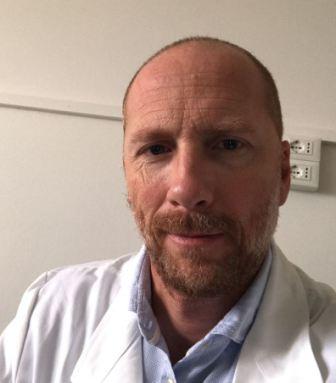Studying at the University of Verona
Here you can find information on the organisational aspects of the Programme, lecture timetables, learning activities and useful contact details for your time at the University, from enrolment to graduation.
Academic calendar
The academic calendar shows the deadlines and scheduled events that are relevant to students, teaching and technical-administrative staff of the University. Public holidays and University closures are also indicated. The academic year normally begins on 1 October each year and ends on 30 September of the following year.
Course calendar
The Academic Calendar sets out the degree programme lecture and exam timetables, as well as the relevant university closure dates..
| Period | From | To |
|---|---|---|
| TPALL 2° ANNO 1° SEMESTRE AA 2015/16 | Oct 5, 2015 | Dec 22, 2015 |
| TPALL 1° ANNO 1° SEMESTRE AA 2015/16 | Oct 5, 2015 | Dec 22, 2015 |
| TPALL 3° ANNO 1° SEMESTRE AA 2015/16 | Nov 2, 2015 | Dec 22, 2015 |
| TPALL 1° ANNO 2° SEMESTRE AA 2015/16 | Feb 1, 2016 | Apr 29, 2016 |
| TPALL 3° ANNO 2° SEMESTRE AA 2015/16 | Feb 1, 2016 | Apr 1, 2016 |
| TPALL 2° ANNO 2° SEMESTRE AA 2015/16 | Feb 4, 2016 | May 27, 2016 |
| Session | From | To |
|---|---|---|
| A.A 2015/16 - Sessione estiva | Apr 11, 2015 | Jul 29, 2015 |
| A.A 2015/16 - Sessione invernale | Jan 7, 2016 | Jan 29, 2016 |
| A.A 2015/16 - Sessione autunnale | Sep 2, 2016 | Sep 30, 2016 |
| Session | From | To |
|---|---|---|
| A.A 2015/16 - Sessione autunnale | Nov 10, 2016 | Dec 15, 2016 |
| A.A 2015/16 - Sessione primaverile | Mar 10, 2017 | May 15, 2017 |
| Description | Period | From | To |
|---|---|---|---|
| Tirocinio Professionalizzante 3° anno | Tirocinio Professionalizzante 3° anno | Oct 5, 2015 | Oct 30, 2015 |
| Tirocinio Professionalizzante 2° anno | Tirocinio Professionalizzante 2° anno | Feb 1, 2016 | Apr 1, 2016 |
| Tirocinio Professionalizzante 3° anno | Tirocinio Professionalizzante 3° anno | Apr 26, 2016 | Jul 15, 2016 |
| Tirocinio Professionalizzante 1° anno | Tirocinio Professionalizzante 1° anno | May 2, 2016 | Jul 1, 2016 |
| Tirocinio Professionalizzante 2° anno | Tirocinio Professionalizzante 2° anno | Jul 4, 2016 | Jul 29, 2016 |
Exam calendar
Exam dates and rounds are managed by the relevant Medicine Teaching and Student Services Unit.
To view all the exam sessions available, please use the Exam dashboard on ESSE3.
If you forgot your login details or have problems logging in, please contact the relevant IT HelpDesk, or check the login details recovery web page.
Should you have any doubts or questions, please check the Enrollment FAQs
Academic staff
 renzo.antolini@unitn.it
renzo.antolini@unitn.it
 borghesi.a@mail.apss.tn.it
borghesi.a@mail.apss.tn.it
 flavio.deflorian@unitn.it
flavio.deflorian@unitn.it
 maurizio.grigiante@unitn.it
maurizio.grigiante@unitn.it
 rocco.micciolo@economia.unitn.it
rocco.micciolo@economia.unitn.it
Piccagli Vando
 francesco.torre@apss.tn.it
francesco.torre@apss.tn.it
 cinzia.vivori@apss.tn.it
cinzia.vivori@apss.tn.it
Study Plan
The Study Plan includes all modules, teaching and learning activities that each student will need to undertake during their time at the University.
Please select your Study Plan based on your enrollment year.
1° Year
| Modules | Credits | TAF | SSD |
|---|
2° Year activated in the A.Y. 2016/2017
| Modules | Credits | TAF | SSD |
|---|
3° Year activated in the A.Y. 2017/2018
| Modules | Credits | TAF | SSD |
|---|
| Modules | Credits | TAF | SSD |
|---|
| Modules | Credits | TAF | SSD |
|---|
| Modules | Credits | TAF | SSD |
|---|
Legend | Type of training activity (TTA)
TAF (Type of Educational Activity) All courses and activities are classified into different types of educational activities, indicated by a letter.
Career prospects
Module/Programme news
News for students
There you will find information, resources and services useful during your time at the University (Student’s exam record, your study plan on ESSE3, Distance Learning courses, university email account, office forms, administrative procedures, etc.). You can log into MyUnivr with your GIA login details: only in this way will you be able to receive notification of all the notices from your teachers and your secretariat via email and soon also via the Univr app.
Graduation
Documents
| Title | Info File |
|---|---|
|
|
pdf, it, 142 KB, 14/04/23 |
Gestione carriere
Orario Lezioni
Documents
| Title | Info File |
|---|---|
|
|
pdf, it, 509 KB, 11/04/24 |
|
|
pdf, it, 499 KB, 11/04/24 |
|
|
pdf, it, 621 KB, 11/04/24 |
|
|
pdf, it, 1453 KB, 07/02/24 |

 045-8027102
045-8027102








